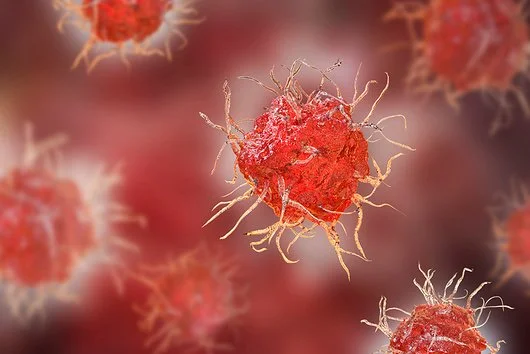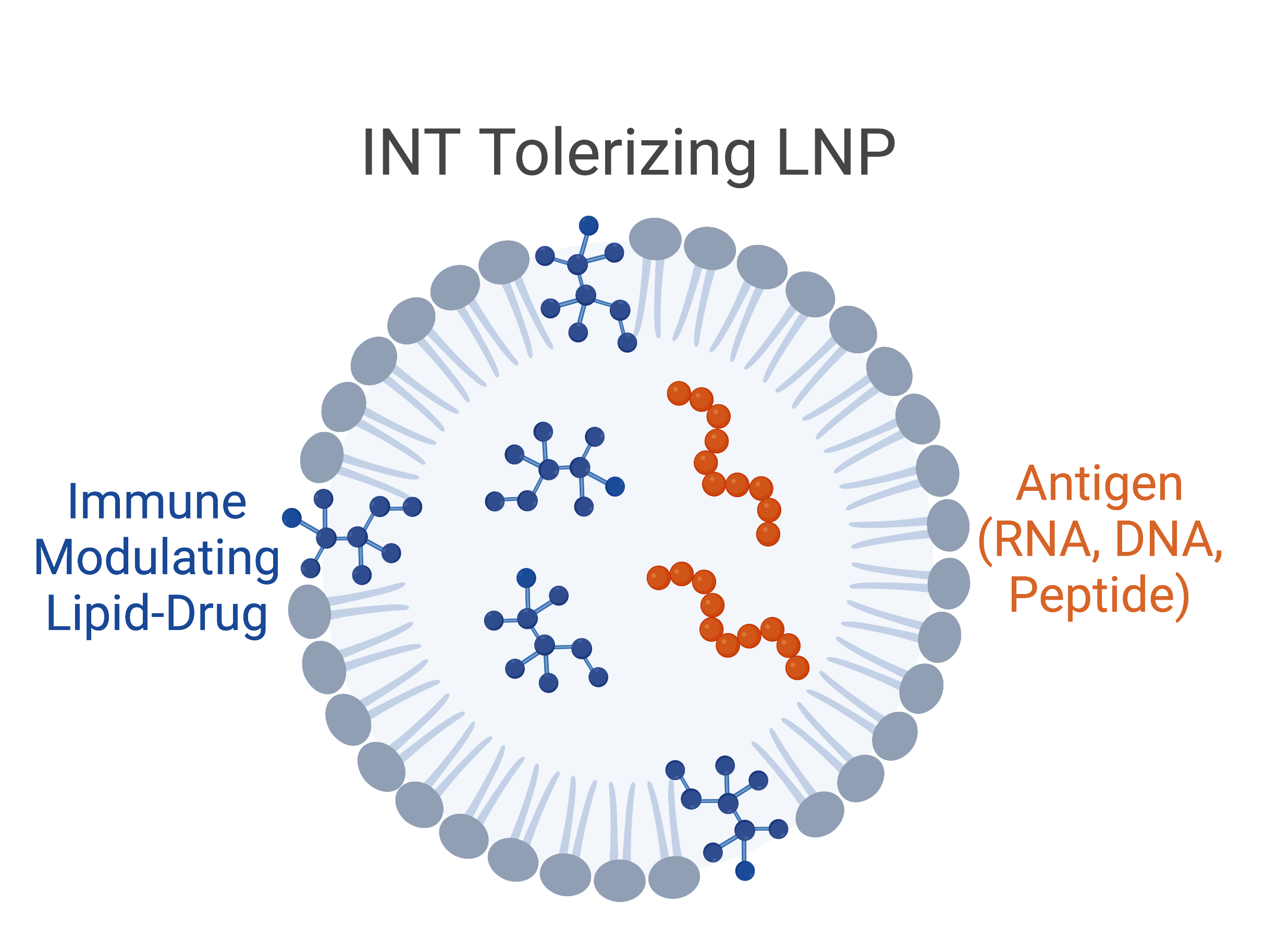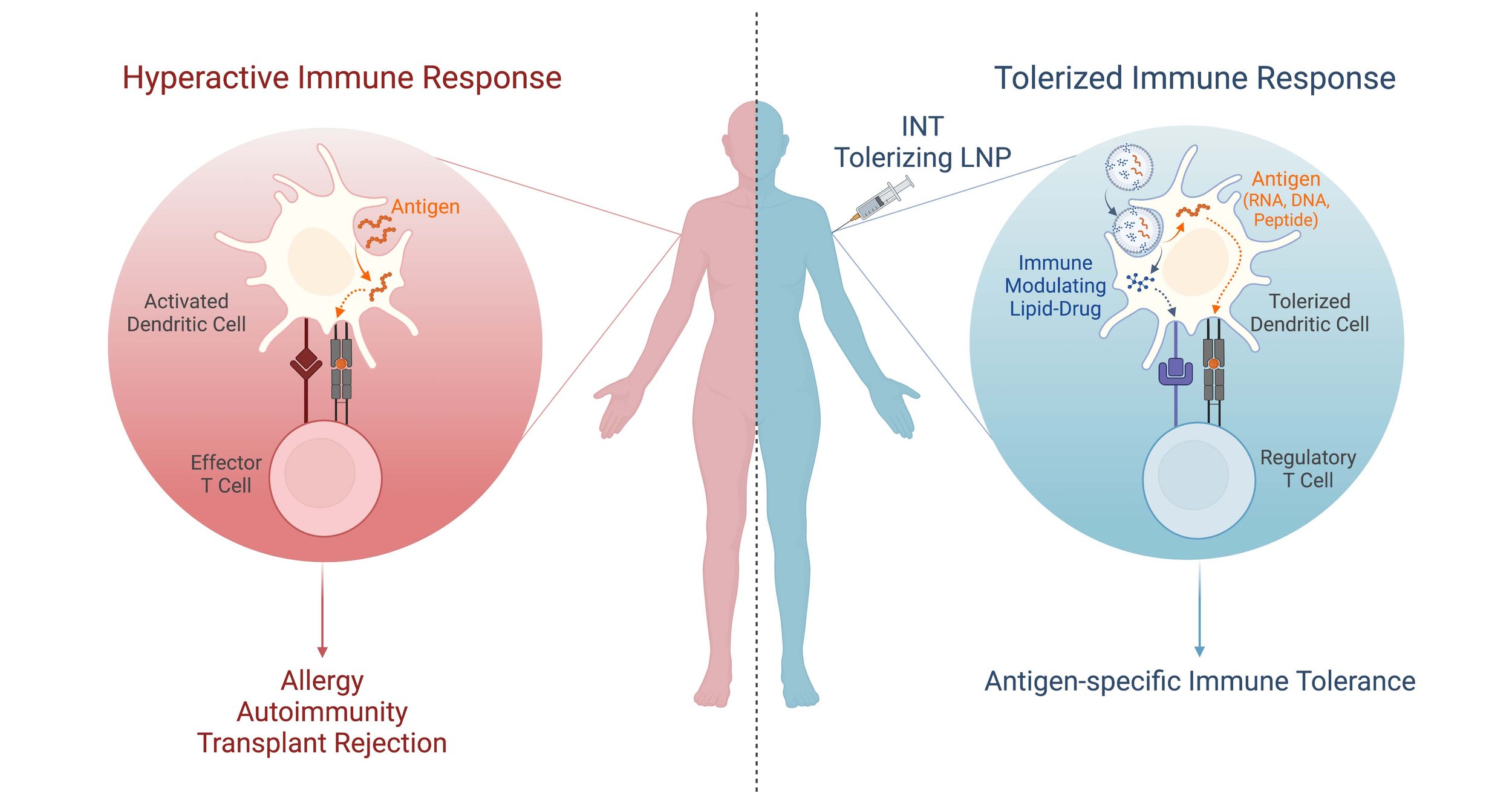Autoimmune disease, caused by a person’s immune system attacking their own cells and organs, encompasses a large number of diverse diseases. This includes type 1 diabetes, multiple sclerosis (MS), inflammatory bowel disease, and others. Most therapeutic options to-date are limited to drugs that broadly suppress the immune system, without addressing the root cause. Our immune tolerance platform enables the development of therapies tailored to address the underlying issue in autoimmunity.
Immune Tolerance Platform
A distinctive strength of our delivery technology is the ability to co-deliver different types of cargo, with effective targeting to immune cells. We are exploiting this unique technical capability to develop a therapeutic platform for a variety of immune diseases.
INT tolerizing LNPs contain both immune-modulating drug(s) and antigen within the same nanoparticle. The antigen can be delivered as mRNA, DNA, protein or peptide, and is customized for the specific disease application.
Antigen-Specific Immune Tolerance - How It Works
Dendritic cells (a type of white blood cell) constantly take up proteins in the body, process them into small fragments and present them to T cells as “self-antigens”. Normally, T cells do not respond to self-antigens. However, in autoimmune diseases, dendritic cells deliver additional activation signals to T cells that instruct them to coordinate an attack against the self-antigen. This results in the activated immune system destroying a person’s own cells and organs. A similar type of inappropriate T cell activation by dendritic cells underlies hyperactive immune responses like allergy and transplant rejection.
Upon injection, INT tolerizing LNPs carrying both the self-antigen and immune-modulating drug(s) are taken up by dendritic cells. While the self-antigen is processed and presented by dendritic cells, the immune-modulating drug sends inactivating signals to T cells, re-training them to not attack the self-antigen and coordinate a regulatory immune response. The outcome is an antigen-specific immune tolerance effect as opposed to broad immunosuppression. With this approach, a person’s own cells and organs are protected while the immune system remains functional to fight infections.



